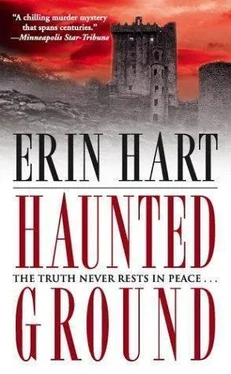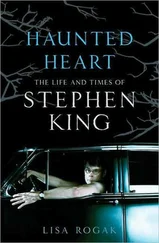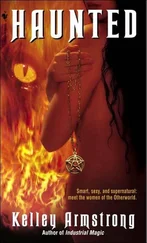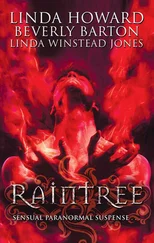Devaney had remained tight-lipped about the postmortem results, but he and his fellow detectives had begun intensive interviews, particularly of Hugh and Lucy Osborne. They had put out additional public appeals for witnesses and information about the day of the disappearance, but as yet no one had been charged. Cormac couldn’t help thinking that nothing would be resolved as long as Jeremy remained unconscious, the words he’d spoken at the tower as much a mystery now as when he’d uttered them. They were all waiting for the moment when the boy would awaken—if he awakened at all.
A few minutes later, Cormac stood by with Nora and Devaney as Niall Dawson launched his examination of the strongbox from the souterrain. Dawson began by taking several photographs of the unopened coffer. He gently tried to work the ancient lock with a thin tool, teasing flakes of rust onto the table below. After a few seconds, the lock cracked apart and fell to pieces in his gloved hand.
“Probably wonderfully strong when they put it on,” Dawson said as he lifted the lid. “Hmm. Seeing what’s in here may help in dating the box quite precisely.” After taking a few photos of the undisturbed contents, he lifted out a slightly concave paten, and a chalice, both of which appeared to be made of pewter or some similar metal. The chalice was set around with uncut stones. The next object was a crucifix, about eight inches long, made of wood, with a crude metal Christ figure.
“See how the arms are very short? Makes it easier to hide up your sleeve, a handy trick if you’re saying a Mass somewhere you oughtn’t. These weren’t items to be caught with—unless of course you felt compelled to risk your neck. So that presents a dilemma: you shouldn’t really destroy them—that would be sacrilege—but you can’t risk anybody finding the bloody things either. So you bury them, and pray for times to change.”
At the bottom of the coffer was a book that looked badly damaged with age, its warped calfskin cover embossed with red and gold. Dawson’s gloved fingers opened the pages at random. It appeared to be a Latin Bible, with woodcut illustrations and initials. From the quick appraisal Dawson gave the book, Cormac surmised that he had apparently seen at least a few others like it.
“Italian imprint, published in 1588,” he said, opening the volume to its flyleaf. “That means the National Library will be at least wanting to take a look at it.” He turned to Devaney. “I’m not sure what you were looking for, Detective. These items have some historical interest, but they’re not all that rare. There’s nothing of great monetary value here, if that was a concern. The Bible is worth a thousand or two at most. You’d find objects of this sort in many local historical museums around the country.”
“I appreciate you coming all the way from Dublin on short notice,” Devaney said. “It’s good to be clear about what we have.”
“Not at all,” Dawson replied.
“Niall,” Nora said, “I wanted to ask if you’ve found out any more about the ring.”
“I’m afraid it’s out of my hands. The decorative arts department has possession of it; they might be able to tell you more.”
“Why would it go to them? I thought ‘decorative arts’ meant vases and furniture.”
“Well, the general rule,” Dawson explained with a wry grin, “is that if an artifact is found in bits it comes to Antiquities; if it’s intact, it goes to Decorative Arts. But you didn’t hear that from me.”
A young Garda officer stuck his head in the door. “Excuse me, Detective Devaney? O’Byrne’s just phoned from the hospital, sir. Jeremy Osborne has come around, and says he won’t speak to anyone but you.”
When Devaney arrived at the hospital, he could see a medical team hovering over Jeremy Osborne’s bed. O’Byrne, the young officer posted at the door, eagerly filled him in on what had happened: “I wasn’t in the room, sir, but I could hear everything that went on. His mother was in there with him, like she has been all along, and you could hear him rustling in the bed, like. ‘Jeremy,’ says she, ‘lie still. I’ll get the doctor.’ Well, I can’t leave me post, so I flag down a nurse and says to her, ‘Get the doctor, yer man’s awake inside in the room.’ I go in, and the next thing you know he’s screaming bloody murder, and telling me to get her out, get her out, he doesn’t want her here, and she’s trying to get him to whisht, and he just gets worse, roarin’ and shoutin’ and carryin’ on till the doctor arrives and sends us both out into the hallway until they get him settled down. Then the mother tries to go in, but he’s at it again, and the doctor tells her to stay out if she wants what’s best for the lad. That’s when I rang you.”
“Where’s the mother now?”
“Over there, sir,” O’Byrne said, indicating her with his eyes. Lucy Osborne sat upright in a chair in the corridor outside Jeremy’s room. Devaney thought he could finally detect the strain beginning to show in her face.
“Mrs. Osborne, I understand that your son wants to speak with me.”
“I should be in there with him,” she said, rising and moving toward the door. Devaney stepped into her path.
“I’m afraid that’s not possible.”
“You don’t understand. Even before the accident, he wasn’t well.”
“I’m sorry, Mrs. Osborne, but we’re allowed to question him alone if he’s over seventeen. I’ll have to ask you to wait here. Maybe one of the nurses would get you a cup of tea or something.” When he turned away, Devaney could feel her eyes drilling holes in his back.
The nurse was taking Jeremy Osborne’s pulse. He looked dreadful, his face still bruised and swollen under the bandages, but Devaney could see relief in the boy’s eyes as he dutifully kept the thermometer under his tongue. He and O’Byrne waited until the nurse left the room, then Devaney closed the door and drew a chair up on the far side of the bed. Through the window, he could see Lucy Osborne’s anxious face as she strained to catch every gesture, to comprehend what was being said behind the glass, and found himself praying fervently that he could play this thing right. It might be his only chance.
“Hello, Jeremy. This is Garda O’Byrne,” he said, indicating the uniformed officer. “I do have to caution you that you’re not obliged to say anything unless you wish to do so, but whatever you say will be taken down in writing and may be given in evidence. Do you understand that, Jeremy?” There was no response. “I have to make sure you understand.”
Jeremy’s voice cracked as he answered: “I understand.”
“We uncovered the bodies of Mina and Christopher Osborne three days ago, in an underground passage near the tower house, just as you said.” He watched the boy’s face crumble. “Why don’t you tell me what happened, Jeremy?”
“Why did he have to stop me? Why couldn’t he just let me die?”
Devaney imagined that the boy was referring to Maguire, who had prevented him from leaping into the fire. “Maybe he saw someone worth salvaging.”
“You don’t understand. I killed them. I killed them both.” Jeremy Osborne looked at him, and Devaney could see the effort it had taken for the boy to speak those words aloud, and how much more it was going to take to finally give the full story. He waited, and Jeremy’s eyes closed once more. The silence grew until it filled the space. Finally, Jeremy began to speak again; Devaney had to lean forward to hear his faint whisper.
“I had my birthday the end of September. Mum gave me a hunting rifle, an old one that belonged to my granddad. She said she didn’t want me to be afraid of guns just because of—because of what happened to my father. I never even touched a gun before. She said to wait until someone showed me the proper way to use it, but I took it out anyway. I was only going to shoot at birds; ah Jesus, I never meant—” Jeremy’s face screwed up again, and Devaney simply waited once more, wishing this could be over.
Читать дальше











